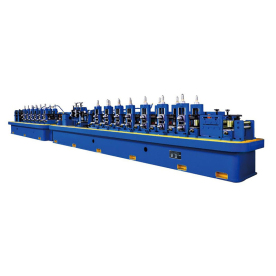In today’s fast-paced manufacturing environment, the demand for efficiency and precision has never been higher. One of the most innovative solutions that has emerged to meet these needs is the Automatic Flying Saw Machine. This advanced technology has revolutionized the way cutting operations are performed in various industries, delivering unprecedented speed and accuracy. In this article, we will explore the key features, benefits, and applications of the Automatic Flying Saw Machine and how it represents a significant advancement in cutting technology.
An Automatic Flying Saw Machine is an automated cutting system designed to process materials such as metal, wood, plastic, and composite materials. Unlike traditional saws that require manual operation and often result in significant downtime, the Automatic Flying Saw Machine operates autonomously, significantly increasing productivity. The machine integrates advanced sensors, computer numerically controlled (CNC) systems, and high-speed saw blades to perform precise cuts while minimizing material waste.

The Revolutionary Automatic Flying Saw Machine: Transforming the Future of Precision Cutting in Industrial Applications

The Revolutionary Automatic Flying Saw Machine: Transforming the Future of Precision Cutting in Industrial Applications
One of the standout features of the Automatic Flying Saw Machine is its high-speed operation. With the ability to cut through various materials at remarkable speeds, this machine reduces operational cycle times. The flying saw technology employs a unique mechanism where the saw blade is set in motion as the material passes through, allowing for continuous cutting without the need to stop the material feed. This capability not only enhances productivity but also minimizes wear and tear on the saw, extending its operational life.
Precision is another critical advantage offered by the Automatic Flying Saw Machine. The use of CNC technology allows for intricate cuts to be made with a level of accuracy that manual saws simply cannot achieve. Operators can input precise measurements into the machine’s software, ensuring that every cut is consistent with the required specifications. This level of precision is vital in industries where tolerances are tight, such as aerospace and automotive manufacturing.
Furthermore, the Automatic Flying Saw Machine is designed with safety in mind. Traditional cutting operations pose various hazards, including potential accidents due to manual handling. Automation reduces the risk of human error and limits the exposure of workers to dangerous machinery. Additionally, many models come equipped with safety features such as emergency stop buttons and automated guards, further enhancing operator protection.
The versatility of the Automatic Flying Saw Machine is evident in its capability to handle diverse cutting jobs. Whether it’s cutting long sheets of metal, shaping wood for furniture, or processing plastic for packaging, the machine can be tailored to suit various applications. This adaptability makes it an invaluable asset in manufacturing environments where multiple materials and profiles must be processed regularly.
In the construction industry, for instance, the Automatic Flying Saw Machine has proven to be an essential tool for fabricating components quickly and accurately. Prefabricated structures benefit from the quick turnaround times offered by automated cutting processes, resulting in faster construction schedules and reduced labor costs. Additionally, as industries move toward sustainable practices, the ability to minimize waste through precise cutting becomes increasingly important.

The Revolutionary Automatic Flying Saw Machine: Transforming the Future of Precision Cutting in Industrial Applications
Investment in an Automatic Flying Saw Machine may seem substantial at first, but the long-term benefits outweigh the initial costs. Companies can expect a quicker return on investment as productivity increases, labor costs decrease, and material waste is minimized. Consequently, businesses that adopt this technology will not only maintain a competitive edge in their respective markets but also position themselves as leaders in innovation.
In conclusion, the Automatic Flying Saw Machine is transforming the landscape of industrial cutting applications. Its blend of speed, precision, safety, and versatility makes it an invaluable tool for manufacturers looking to optimize their production processes. As technological advancements continue to evolve, we can expect to see even more innovations that will enhance the capabilities of the Automatic Flying Saw Machine, solidifying its role in the future of manufacturing. Embracing such technologies will undoubtedly lead to increased efficiency, improved quality, and ultimately a more sustainable approach to industrial operations.Tube Mill Replacement Parts




